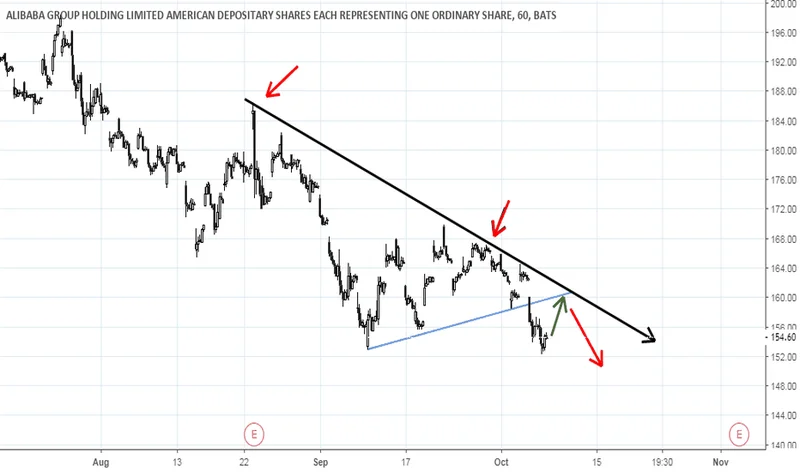Alibaba (BABA) has seen a remarkable surge this year, climbing over 91% on the back of AI cloud growth and rapid delivery demand. But before you jump on the bandwagon, let's dissect the numbers. TipRanks' AI Analyst, Rina Curatex, using OpenAI-4o, just downgraded the stock to "Neutral," cutting the price target to $176. Wall Street, however, is still bullish, projecting a 24% upside. This discrepancy is… interesting.
TipRanks’ AI Stock Analysis gives Alibaba a 69 out of 100, citing "strong financial performance" offset by "bearish technical indicators and valuation concerns." The AI points to Alibaba's gains in AI and cloud services, with Q1 FY26 revenue hitting 247.7 billion yuan (about $34.6 billion), and cloud sales jumping 26% year-over-year. But it also flags weak free cash flow due to high spending, losses in quick-commerce, and rising debt.
The White House is also weighing in, with a leaked memo alleging Alibaba provides technical support to the Chinese military, including access to customer data and knowledge of "zero-day" exploits. Shares dipped 4.5% on this news, ending the day down 3.05%.
So, who's right? Wall Street's optimism versus the AI's caution, compounded by national security concerns? It feels a bit like trying to reconcile two completely different data sets. And this is the part I find genuinely puzzling: how can there be this much daylight between the AI's assessment and the broader market sentiment?
Let’s break down some of the key factors. The AI highlights Alibaba's cloud growth (26% YoY), and the strategic SAP partnership. These are undeniable positives. However, the "weak free cash flow" is a significant red flag. The AI attributes this to "high spending," but that's a bit vague. What kind of spending? Is it R&D, infrastructure, or aggressive marketing to grab market share? Details on exactly how the money is being spent are scarce, but the impact is clear: less financial flexibility.
Quick-commerce losses are another concern. The AI notes "strong competition" in fast delivery. This is a brutal space, with razor-thin margins and constant pressure to offer faster, cheaper service. Is Alibaba positioned to win this war, or is it just burning cash to stay in the game?

Then there's the debt. Rising debt "could increase financial risk," according to the AI. True, but the key question is: at what rate is the debt rising? And what are the terms? A low-interest, long-term loan is a different beast than a high-interest, short-term obligation. The AI’s analysis is correct, but lacks crucial depth to fully assess the risk.
And we can’t ignore the elephant in the room: the White House allegations. Even if Alibaba is completely innocent, the perception of aiding the Chinese military is enough to spook investors. White House says Alibaba provides tech support to Chinese military; shares fall By Investing.com This isn’t just about numbers; it's about geopolitical risk, and that's something an algorithm can't fully quantify.
I've looked at hundreds of these filings, and the disconnect between the AI assessment and Wall Street's "Strong Buy" rating is unusual. The average price target is $198.21, implying a 24.01% upside, but is that upside realistic given the headwinds?
Let's engage in a little methodological critique. How does TipRanks' AI Stock Analysis actually work? It's an "automated, data-driven evaluation" based on "key performance metrics." Okay, but which metrics? And how are they weighted? The model combines insights from OpenAI's GPT-4o and Google's Gemini. But are these LLMs truly equipped to understand the nuances of the Chinese market, the regulatory risks, and the potential for political interference?
The AI sees the numbers, but does it understand the story behind them? I think not.
The AI's downgrade might be a cold dose of reality in a market swept up in hype. While Wall Street sees a clear path to 24% gains, the AI is flashing warning signs: weak cash flow, quick-commerce losses, rising debt, and geopolitical risks. The AI doesn't have a crystal ball, but it's forcing us to confront the less-glamorous aspects of Alibaba's story.